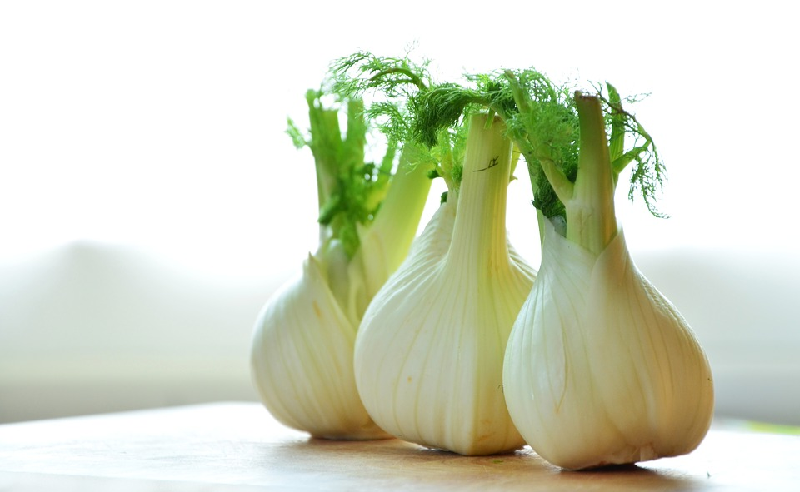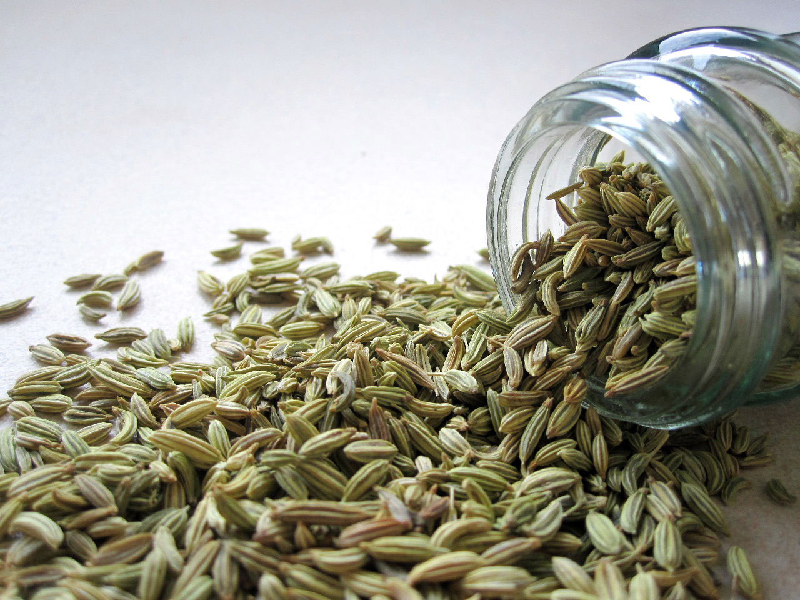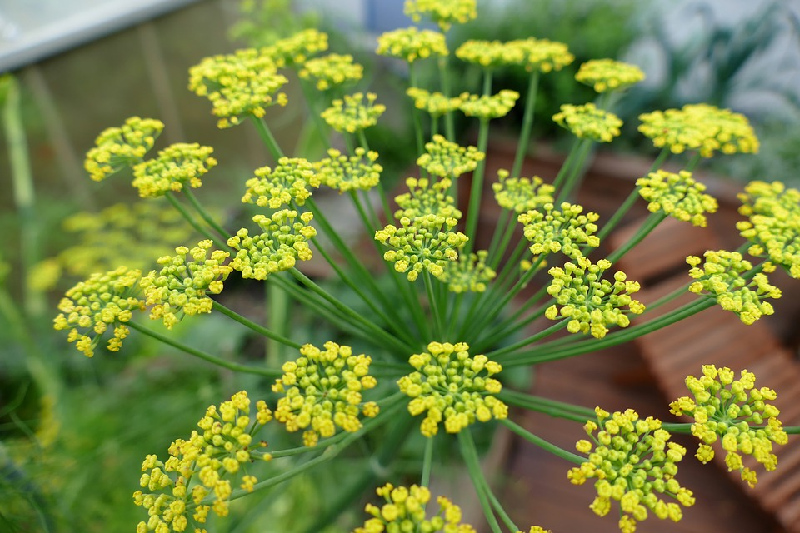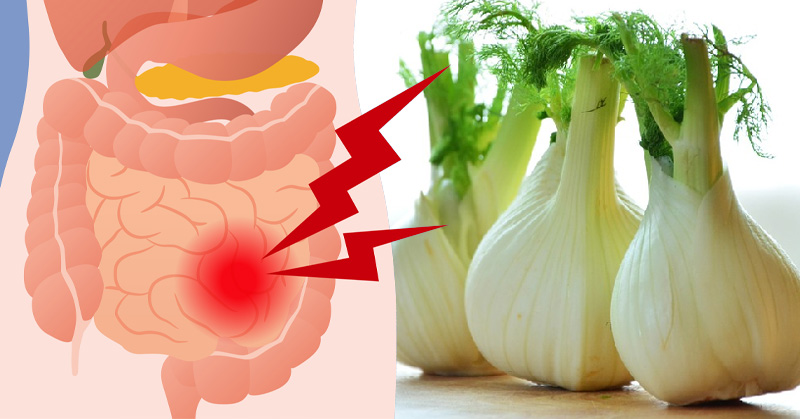Fennel is a celery-like winter vegetable. Its flavor it similar to licorice, and its health benefits are many. In fact, fennel has been used in several cultures for its medicinal properties. For example, in ancient Chinese medicine, fennel is used to help with the flow of breast milk as well as relieving congestion. Other fennel health benefits include promoting bone health, improving colic, and preventing cancer. Read below to find out what other health benefits fennel offers.

Here are 10 fennel health benefits:
1. Bone Health
Fennel health benefits, due to the calcium content, include the ability to promote bone health. This vegetable contains about 10 percent of the recommended daily intake of calcium. However, calcium isn’t the only bone-boosting nutrient in fennel. It also contains magnesium, phosphorus, and vitamin K. All of these help maintain bone strength.
2. Improves Skin Health
Additionally, fennel health benefits include improving your skin. This is due to the vitamin C within fennel. Vitamin C, as an antioxidant, fights against free radical damage that can lead to premature signs of aging. Furthermore, vitamin C helps form collagen. Scurvy, or a vitamin C deficiency, leads to bleeding gums as well as bleeding below the skin. (1)
To reap fennel health benefits regarding skin health, add it and other vitamin C-rich foods to your diet.
3. Lowers Blood Pressure

Fennel health benefits continue with the ability to lower blood pressure as well as inflammation. This is due to the potassium content and low sodium content. Potassium works against sodium, which helps to fight against high blood pressure. (2)
4. Aids Digestion
Aiding in digestion is also on the list of fennel health benefits. The fiber in fennel provides bulk to your stool, which can help ease waste from your body. As such, fennel helps with such digestive issues as constipation and IBS.
Fiber also helps cleanse the colon, moving like a small brush through your digestive system. This helps prevent colon cancer.
Furthermore, fennel health benefits include helping those who suffer from acid reflux. It does this by helping balancing the pH level within your stomach.
5. Increases Satiety
Fennel health benefits extend to keeping you full and helping you lose weight. This again is due to the fiber content within fennel. In fact, a 2001 study examined the effects of fiber on diets. Researchers gave participants 14 grams of fiber a day to their diets, without changing any other aspect of what they ate. Those who ate fiber consumed 10 percent fewer calories and lost roughly 4 pounds over a period of 4 months. (3)
As such, it seems adding fiber to your diet should be one of the first steps in a weight loss plan.
6. Improves Colic
Fennel seed health benefits extends to infant health, as well. For example, a 2003 study found that fennel seed oil reduced incidents of colic by 65 percent. This was measured by crying episodes.
The safest way to use fennel to treat colic is for the breastfeeding mother to drink fennel tea. (4, 5)
7. Helps Prevent Cancer
Due to an oil called anethole fennel contains, fennel health benefits continue with prevention of cancer, as well. It’s believed anethole reduces inflammation that may lead to the development of cancer. However, further research is needed in order to determine proper usage. (6)
Furthermore, selenium, also present in fennel, can help reduce cancer remission as well as mortality. (7)
8. Decreases Risk of Heart Disease

Soluble fiber, as found in fennel, can help balance cholesterol levels in the bloodstream. Furthermore, a high-fiber diet and reduce overall risk for heart attack and stroke.
9. Eye Health
Fennel contains flavonoids, vitamin C, and minerals that can help reduce oxidative damage and inflammation. As such, these nutrients can help fight against macular degeneration, which is the leading cause of age-related vision loss. (8)
10. May Ease Menopausal Symptoms
Fennel may also help improve symptoms of menopause. One study examined the effects of fennel on 90 women, all of whom had been postmenopausal for at least one year, but no more than five years. Those who received fennel saw improvements in symptoms while those who received the placebo did not. (9)
Caution: Those with kidney disease should avoid fennel, due to the high content of potassium within this vegetable. Furthermore, those who take beta-blockers may need to avoid fennel.


